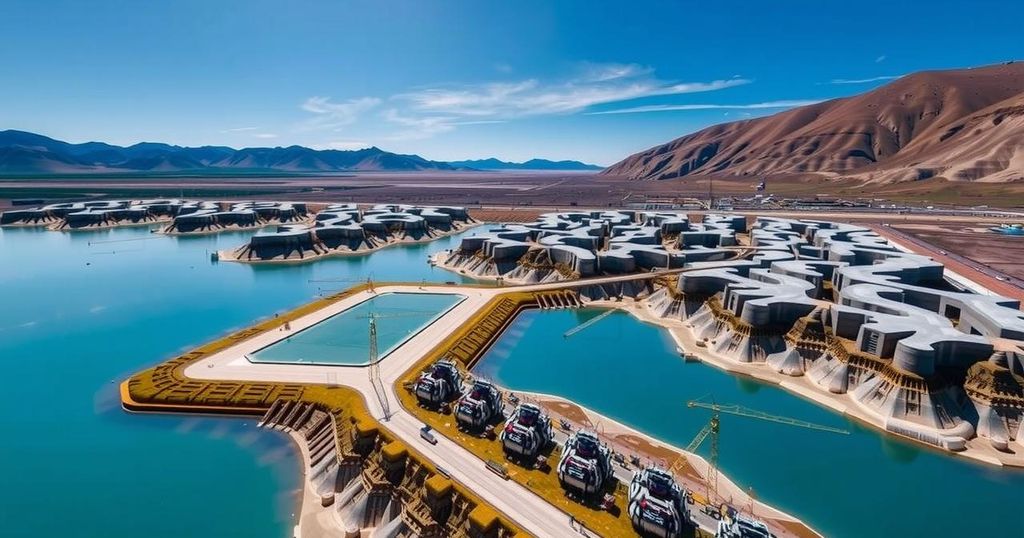Bolivia has signed a $1 billion deal with China’s CBC to build lithium carbonate plants, aiming to increase its global lithium market share. The plants will produce 35,000 metric tonnes annually using advanced DLE technology, with Bolivia retaining majority control. However, political challenges may impede progress, raising concerns about dependency on foreign investment and its long-term implications on national sovereignty.
Bolivia has recently announced a significant agreement valued at $1 billion with China’s CBC, a subsidiary of the prominent battery producer CATL, to establish two lithium carbonate plants in the Uyuni salt flats. This development, made public on November 26, aims to strengthen Bolivia’s position in the global lithium market, despite the country’s historical challenges in leveraging its substantial lithium reserves. The plants are projected to yield a total of 35,000 metric tonnes of lithium annually, utilizing advanced direct lithium extraction (DLE) technology to enhance production efficiency while minimizing environmental impact.
The Bolivian state-owned company YLB will retain a 51% stake in the joint venture, thereby ensuring national control over significant lithium resources. President Luis Arce heralded the agreement as a transformative step towards establishing Bolivia as a key player in the international lithium landscape, highlighting its potential to affect global lithium pricing. Nonetheless, this endeavor faces several obstacles including the necessity of parliamentary approval, which may be hindered by political fragmentation and upcoming election cycles scheduled for 2025.
This agreement follows an earlier partnership worth $976 million with Russia’s Rosatom-owned Uranium One Group, which also intends to utilize DLE technology aimed at generating 14,000 metric tonnes of lithium per year. The Bolivian government has ambitions to ultimately export 50,000 tonnes of lithium carbonate a year as the industry develops. However, reliance on foreign investment, particularly from Chinese and Russian entities, introduces the risk of diminished sovereignty over national resources and potential unfavorable terms in their dealings.
While Bolivia possesses the world’s largest lithium deposits, estimated at 23 million metric tonnes, it has consistently lagged behind Chile and Argentina in production capability due to infrastructural deficits, regulatory challenges, and ongoing political turmoil. The country’s efforts to cultivate its lithium industry have been stymied since the 1990s by bureaucratic inefficiencies and logistical barriers, necessitating the navigation of complex environmental regulations and the procurement of legislative approval, a challenging feat given its current political climate.
Bolivia is recognized for housing the largest lithium reserves worldwide, an asset valued at approximately 23 million tonnes. Despite this, the country has struggled to capitalize on its resources compared to neighboring nations like Chile and Argentina, which have more advanced lithium extraction and production capabilities. Historically plagued by infrastructure inadequacies, regulatory complexities, and political instability, Bolivia’s endeavor to develop its lithium sector has faced numerous setbacks. Recent agreements with foreign stakeholders are aimed at advancing these objectives and enhancing Bolivia’s stature in the global lithium marketplace.
In conclusion, Bolivia’s $1 billion agreement with China’s CBC marks a pivotal moment in its pursuit of becoming a leader in the global lithium market. However, this venture not only emphasizes Bolivia’s need to harness its natural resources but also brings to light the considerable challenges of maintaining political stability and navigating foreign partnerships. Observers remain watchful of how this situation will unfold, especially in relation to Bolivia’s long-term independence and management of its vast lithium reserves.
Original Source: www.intellinews.com






